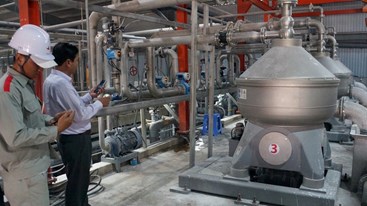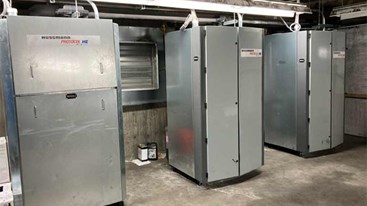Wednesday, 18/02/2026 | 15:48 GMT+7
The Body Shop packaging could soon be made from greenhouse gases that would otherwise pollute the atmosphere, thanks to a new research partnership between the retailer and cleantech firm Newlight Technologies.
California-based Newlight is the proprietor of AirCarbon – a thermoplastic that behaves the same as normal plastics but uses methane and carbon dioxide as its foundation rather than oil.
The ‘development partnership’ between the two firms will see The Body Shop become the first company to try and industrialise AirCarbon in the beauty industry. Aircarbon is currently used by Dell in its laptop packaging.
The Body Shop’s international director of CSR Christopher Davis said he hoped the research commitment would help improve the resource efficiency of product packaging around the world.

How it works
Carbon emissions are captured from farms, landfills and energy facilities and then fed into a reactor, where the fumes are catalysed by enzymes and turned into a substance called AirCarbon. This is then cooled and sliced into plastic pellets which can be moulded into almost anything.
The AirCarbon production process is carried out at a yield that is over nine times more efficient than previous technologies, making it commercially viable for a company like the Body Shop.
Newlight chief executive Mark Herrema said: “We are proud to work with The Body Shop to help them replace oil-based plastics with AirCarbon, and use captured carbon as a source of good.”
Sea-change
The latest partnership is part of a new commitment by The Body Shop to reduce its use of oil-based plastic packaging by 70% by 2020.
The plastics industry already uses as much oil as the aviation sector – equivalent to 8% of total oil production – and is forecast to rise to 20% by 2050, thanks to the explosion in plastics use. The industry creates more than 800 billion tonnes of carbon emissions a year.
The initiative will see The Body Shop explore a number of new academic, technology and research partnerships to pioneer new product packaging solutions, product designs and product life extension strategies.
“The Body Shop is a company that has pioneered different ways of thinking, a legacy we’re immensely proud of,” said Davis. “We want to take action to reduce our impact on the planet, radically reinterpreting the way we sell and buy cosmetics and how our customers use them.
“We are inviting global experts to supports us in achieving this goal, a journey that will ensure 70% of our product packaging does not contain oil-based plastics by 2020.”
Edie.net








 Consultation on the methodology for developing and updating energy consumption standards for four major industrial sectors
Consultation on the methodology for developing and updating energy consumption standards for four major industrial sectors
 Opening of the 2025 Energy-Efficient Equipment and Green Transition Exhibition Fair
Opening of the 2025 Energy-Efficient Equipment and Green Transition Exhibition Fair
 Energy-saving solutions and green transition promotion
Energy-saving solutions and green transition promotion
 The 9th VEPG Steering Committee Meeting: Strengthening Coordination for Viet Nam’s Just Energy Transition
The 9th VEPG Steering Committee Meeting: Strengthening Coordination for Viet Nam’s Just Energy Transition